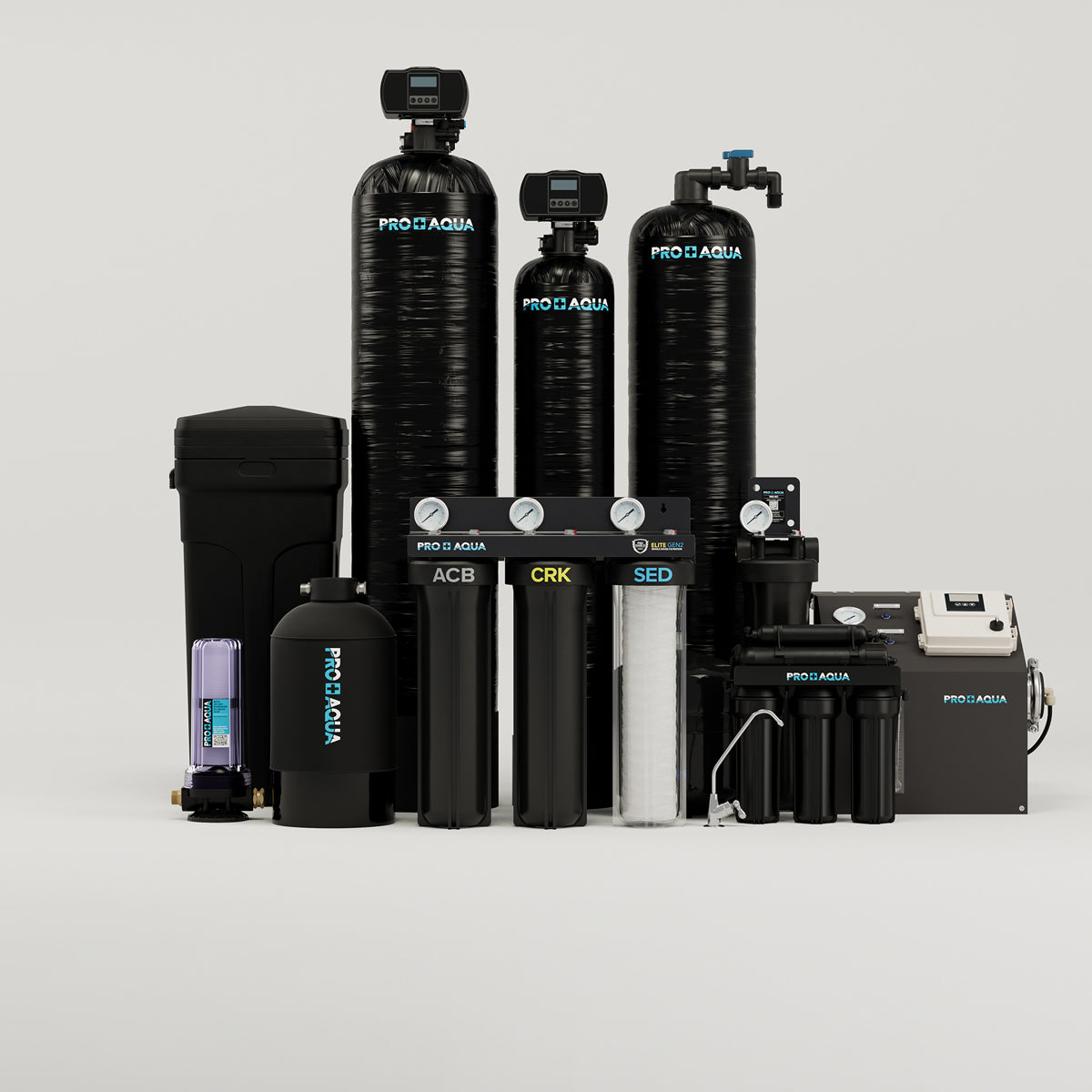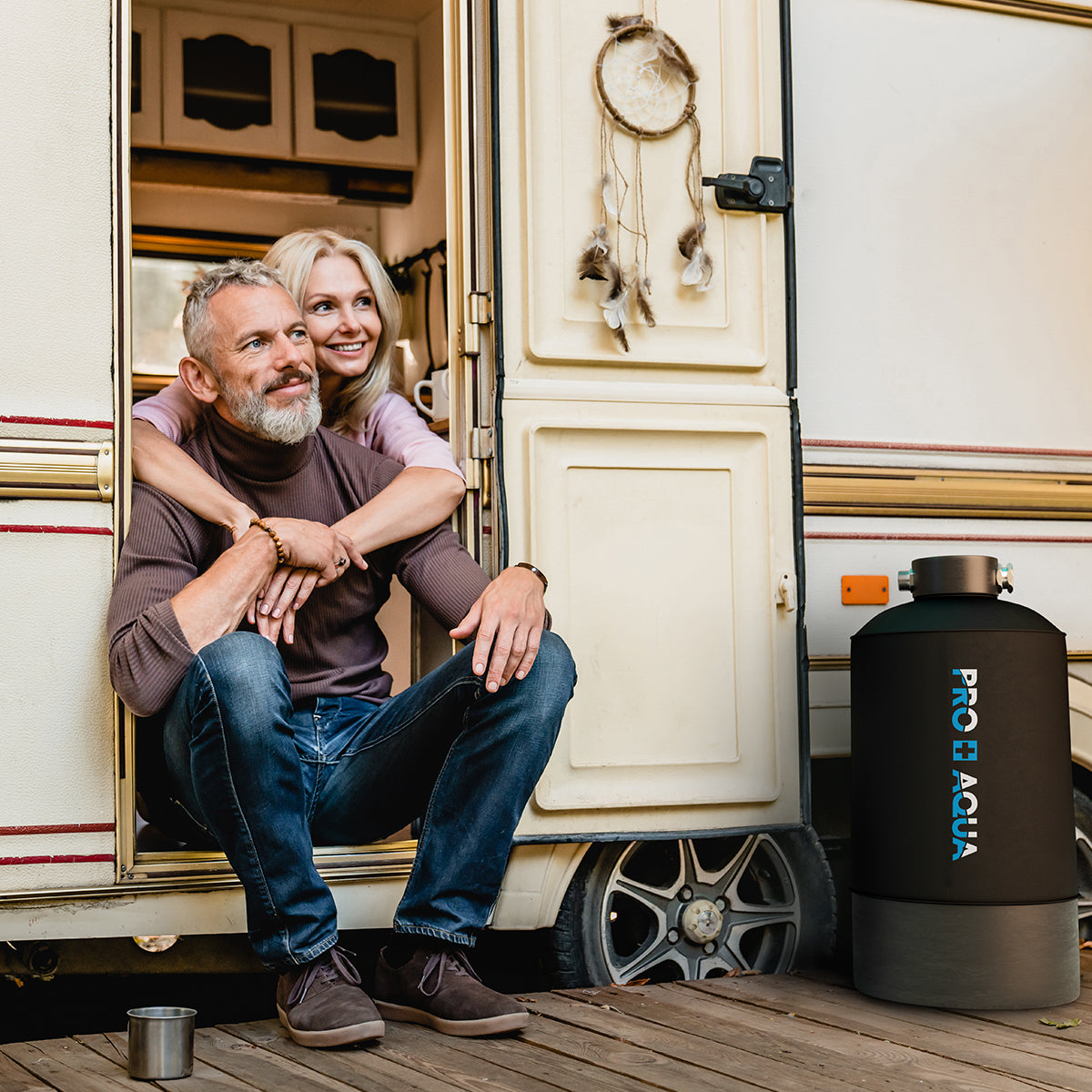When it comes to mobile auto detailing, the most important part of the job is the water that’s used. Water is the base of the business and if regular tap water is used, detailers will have to deal with hard water spots.
This can be problematic especially if they are working during a hot day. Calcium and magnesium in tap water will dry onto the car’s finish and it usually takes special chemicals to remove. Not only is this burdensome, but it’s an extra step they’ll need to take which in the long run can affect their overall profit margins since they are taking up time and materials just to treat hard water stains.
One of the best ways to deal with hard water stains is to start with good water, keep in mind that old saying, “prevention is the best protection.” We’ll go over 4 types of water and discuss the applicable pros and cons when it comes to auto detailing. Hopefully, by the end of this article, you’ll be able to pick which method is best for you.
1. Cation Deionized Water
Deionized water (or DI water) is passed through a resin bed to neutralize the electrical charge of any ions or metals that it contains. When this happens water cannot conduct electricity.
To do this, two types of resin beds can be used. The first is what is called a cation (cat-ion) bed. Typically there are two tanks in this system and one is designed to remove or neutralizes the cations and the other removes the anions.
2. Mixed Bed Deionized Water (Cation and Anion)
Another option is called a mixed bed and has the cation and anion resins combined in a cartridge or tank. When used, the final product is water that has lost its ability to conduct electricity because of the neutralized metal elements in the water. It’s the same concept of a magnet that has been demagnetized.

This option is a mobile detailer’s first choice because the size of the tanks lends itself to portability, plus lets them process water on-site by connecting a garden hose to it directly. On a side note, this type of water filtration is also preferred by professional window washers for the same reasons mentioned.
The PRO+AQUA RinseMaster series has portable DI systems ranging from 1,100-3,100 gallon usage depending on your needs.
Fun fact: the Intel plant in Chandler, Arizona produces 2 million gallons of industrial deionized wastewater which is enough to fill at least 30,000 bathtubs. That wastewater is then pumped to a nearby facility where it’s treated, then returned to an underground aquifer.
3. Reverse Osmosis (RO)
The third option is reverse osmosis (RO). RO water is microfiltered, usually through a membrane filter that removes a variety of contaminants such as viruses, minerals, VOCs, and more. It also removes chemicals that water treatment plants use to sanitize drinking water such as chlorine, and chloramine.
The challenge with this type of filtration for detailers would be the volume of water needed. Most home RO systems can only produce up to 75 gallons per day of RO water. That may seem sufficient for detailers since they carry 55-100 gallons of water on their vehicle per day.
 However, at that rate, it would take a full 24 hours for it to produce a complete 75 gallons. A commercial-grade reverse osmosis system like the PRO-RO would be the ideal system that detailers can rely on since it can produce 1000gpd or 42 gallons per hour.
However, at that rate, it would take a full 24 hours for it to produce a complete 75 gallons. A commercial-grade reverse osmosis system like the PRO-RO would be the ideal system that detailers can rely on since it can produce 1000gpd or 42 gallons per hour.4. Soft Water
The fourth and final option is to use soft water. Soft water doesn’t contain any hard minerals such as calcium and magnesium. This is possible through a process called ion exchange. Basically what happens is, tap water enters the softener and comes in contact with small resin beads that are ionically charged by salt and when the water passes by, the resin will exchange salt for the minerals. The water coming out of the softener is now mineral-free.

The easiest way to use soft water for detailers is to utilize a portable RV water softener like the PRO+AQUA Travel Series. By using a portable softener, a detailer wouldn’t need to carry his water supply, they can simply connect it to his client’s water source, then connect a pressure washer.
A benefit to using soft water is that soap and detergents will not react to minerals as they normally would with tap water. When tap water and soap mix, a substrate is created that’s known as soap scum. Plus the sheeting action one will get while using a foam cannon with soft water will be very impressive.
Sheeting can be described as the soap covering a vehicle, much like a sheet. This is great for detailing because soap helps to lift the soil so it can be washed away. The more apparent the sheeting is, the cleaner the vehicle will be.
Now that we know which type of water is best for auto detailing, let’s look at some of the pros and cons of each one.
DI Water Pros & Cons
Deionized water is superior water to use for detailing because the total dissolved solids in the water are typically at zero. That means this water can be used as a final rinse and left alone to dry, also known as a spot-free rinse. The drawback with DI water is the resin. Though its a highly effective resin, it cannot be regenerated like the resin from a water softener. Many companies that offer spot-free rinse with their products will require you to buy expensive refills.
Overall – Works great! But expensive in the long run. The cost of refill media is expensive
Mixed Bed Resin Pros & Cons
Mixed bed media is a better alternative to a full DI system. The resin does last longer than DI since it’s combining both DI and Soft Water Resin. But again, the downside would be the lack of ability to recharge the resin. Also, the cost of refill cartridges or media can be as much as $150 at a time.
Overall – Works great! But not a great choice for the same reasons as DI filters, expensive.
Reverse Osmosis Pros & Cons
Reverse osmosis provides great spot-free results. The PRO RO can produce up to 1000gpd, plenty of water to supply a fleet of detailers. Parts such as the membrane and prefilters can be easily replaced and are generally available online.
Overall – One of the best options since it can produce a lot of pure water, perfect for spot-free rinsing. Parts are readily available and can be serviced by anyone.
Water Softener Pros & Cons
A portable water softener would the most economical way to filter water. This process eliminates calcium and magnesium from tap water to prevent hard water spots. The only downside, it’s not ideal for spot-free rinsing. The water will need to be dried off the vehicle, but the nature of soft water is it will glide across a car’s finish. So using a powerful leaf blower will yield some great results.
Overall – Most economical way to wash cars, if a detailer doesn’t carry a holding tank for water, they can just connect to their client’s water supply. The only downside is you can’t use it for a spot-free rinse.
We’ve presented 4 different types of water that could be used for auto detailing. Each one has its benefits and downsides, choosing which type to use is dependent on a variety of factors. But ultimately you have to decide which one works best for your business.







Leave a comment
This site is protected by hCaptcha and the hCaptcha Privacy Policy and Terms of Service apply.